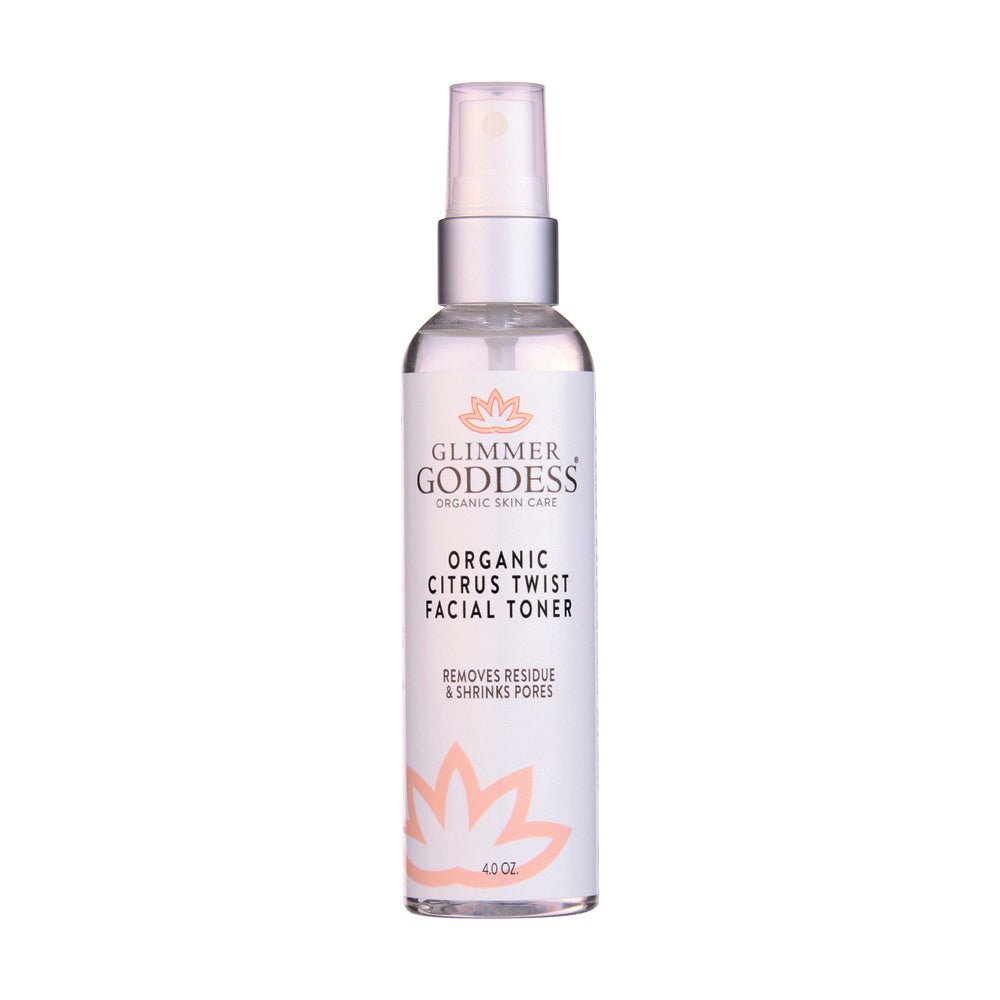
Unlock the Secrets to Radiant, Youthful Skin with Our Organic Vitamin C Serum
Discover the secrets to unlocking radiant skin with the ultimate guide on using vitamin C serum for maximum results. From the dos and don'ts to perfect pairings and application tips, get ready for a skin-transformation journey like never before.
The Dos and Don'ts of Vitamin C Skincare
Morning or Evening: What Works Best?
Incorporating vitamin C into your skincare routine is a great way to boost your complexion, but the optimal time to apply it can be a bit tricky. Should you use it in the morning or at night? The answer may surprise you.
When it comes to the best time to apply vitamin C, there are a few key factors to consider:
- The primary purpose of vitamin C in skincare is to help neutralize free radicals and protect the skin from environmental aggressors like UV rays and pollution. This makes morning application ideal, as it can help shield your skin throughout the day.
- However, vitamin C can also help boost collagen production and fade dark spots or discoloration. These benefits may be better reaped at night when the skin is in repair mode.
- Some formulas of vitamin C can be slightly irritating, especially for those with sensitive skin. Applying it in the evening may be gentler, as you won't be exposing your freshly-treated skin to the elements.
Ultimately, the "right" time to use your vitamin C serum comes down to your individual skin type and needs. Experiment with both morning and evening application to see what works best for you.
Can I Use Vitamin C Serum After Exercising?
If you're an active person who likes to get their sweat on, you may be wondering how that impacts your vitamin C routine. Can you still use your serum after a workout, or is it best to avoid it?
Here's what you need to know about using vitamin C after exercise:
-
Exercise can increase blood flow and open up the pores, making it an optimal time to apply skincare ingredients like vitamin C. The increased circulation can help the antioxidant get deeper into the skin.
-
However, post-workout skin is also more sensitive and potentially irritated from the friction and heat of your workout. Applying a potent serum right away may cause redness or stinging.
-
The best approach is to wait at least 30 minutes after your workout before applying vitamin C. This gives your skin time to calm down and recover before introducing the active ingredient.
-
You can also try diluting your vitamin C serum with a few drops of water or moisturizer to make it gentler on post-workout skin.
Listening to your skin's cues and finding the right balance is key. With a little trial and error, you can find a vitamin C routine that works seamlessly with your active lifestyle.
How Does Temperature Affect Vitamin C Application?
Temperature can have a big impact on the efficacy and performance of your vitamin C products. Both extremes - hot and cold - can influence how the ingredient behaves and interacts with your skin.
Here's a closer look at how temperature affects vitamin C skincare:
-
Vitamin C is a notoriously unstable ingredient that can degrade quickly when exposed to heat, light, and air. Applying a vitamin C serum in a warm environment, like after a hot shower, can cause the product to lose its potency faster.
-
On the flip side, applying a cold vitamin C product directly onto the skin can cause temporary irritation and redness. The sudden change in temperature can shock and sensitize the skin.
-
The ideal temperature range for vitamin C application is room temperature or slightly cool. This helps maintain the integrity of the formula and prevents any uncomfortable reactions.
-
If your vitamin C serum has been stored in a cold environment, like the refrigerator, be sure to let it come up to room temperature before applying. This allows the formula to fully stabilize before going on the skin.
-
You can also try gently warming the serum in your hands for a few seconds before application to take the chill off.
Paying attention to temperature is an easy way to get the most out of your vitamin C products and ensure they perform at their best. A little temperature TLC can go a long way!
The Ultimate Guide to Vitamin C: Unlocking its Skin-Transforming Powers
What Other Products Pair Well with Vitamin C?
Vitamin C is a versatile skincare ingredient that can be seamlessly integrated into your daily routine. When used correctly, it can work in harmony with other powerful ingredients to enhance the overall effectiveness of your regimen. Let's explore the perfect pairings for this skin-brightening wonder.
Vitamin C and Hyaluronic Acid: A Hydrating Duo
- Hyaluronic acid is a powerful humectant that can draw moisture into the skin, complementing the antioxidant properties of vitamin C.
- Together, they work to combat dryness, improve skin elasticity, and promote a youthful, radiant complexion.
- Incorporating a serum or moisturizer containing both vitamin C and hyaluronic acid can provide a comprehensive approach to hydration and skin rejuvenation.
Vitamin C and Retinol: A Transformative Combination
- Retinol, a derivative of vitamin A, is known for its ability to stimulate cell turnover and improve the appearance of fine lines and wrinkles.
- When paired with vitamin C, the two ingredients can work synergistically to address a wide range of skin concerns, from uneven texture to signs of aging.
- However, it's important to introduce these active ingredients slowly and use them with caution, as they can be drying if not properly balanced.
Vitamin C and Sunscreen: Unbeatable Sun Protection
- Sunscreen is a non-negotiable step in any skincare routine, and combining it with vitamin C can amplify the benefits.
- Vitamin C helps neutralize free radicals and protect the skin from environmental aggressors, while sunscreen shields against harmful UV rays.
- This dynamic duo can work together to prevent premature aging, hyperpigmentation, and other sun-related skin concerns.
By exploring the synergistic relationships between vitamin C and other skincare powerhouses, you can unlock a world of transformative results for your skin. Remember, as with any active ingredient, it's essential to introduce new products gradually and listen to your skin's unique needs.
Do I Use Vitamin C Before or After Moisturizer?
The order in which you apply your skincare products can significantly impact their effectiveness. When it comes to vitamin C, the timing of its application is crucial. Let's dive into the right way to incorporate this potent ingredient into your routine.
Applying Vitamin C Before Moisturizer
- Using vitamin C serum before your moisturizer allows the active ingredient to penetrate deeply into the skin.
- This method ensures that the vitamin C can work its magic on the deeper layers of the skin, addressing concerns like fine lines, wrinkles, and uneven tone.
- Applying vitamin C first also helps to maximize its antioxidant benefits, as the serum can protect the skin from environmental stressors before the moisturizer is applied.
Applying Vitamin C After Moisturizer
- Some individuals may find that applying vitamin C serum after their moisturizer helps to prevent any potential irritation or dryness.
- This approach can be especially beneficial for those with sensitive skin or those who are new to using vitamin C.
- The moisturizer can help to create a barrier and buffer the effects of the active ingredient, ensuring a gentler introduction to vitamin C.
Determining the Best Approach for You
- The optimal timing for applying vitamin C will depend on your skin type, sensitivity, and personal preferences.
- It's recommended to start by using vitamin C before moisturizer and observe how your skin reacts.
- If you experience any discomfort, try applying the vitamin C serum after your moisturizer and see if that provides a more comfortable experience.
Ultimately, the key is to find the method that works best for your individual skin needs. Experiment and listen to your skin's cues to discover the perfect vitamin C application routine.
Is It Safe to Layer Vitamin C with Other Active Ingredients?
Vitamin C is a powerful skincare ingredient that can work in synergy with other active ingredients to enhance its benefits. However, it's important to understand the potential interactions and ensure that your skincare regimen is safe and effective. Let's explore the do's and don'ts of layering vitamin C with other actives.
Pairing Vitamin C with Retinol
- Retinol and vitamin C can be layered, but it's crucial to introduce them slowly and with caution.
- Start by using the two ingredients on alternating days or in the morning and evening, respectively.
- This gradual approach helps to minimize the risk of irritation and ensures that your skin has time to acclimate to the active ingredients.
Combining Vitamin C with AHAs and BHAs
- Alpha-hydroxy acids (AHAs) and beta-hydroxy acids (BHAs) can be combined with vitamin C, but it's essential to strike the right balance.
- Begin by using the acids and vitamin C on separate days, then gradually introduce them into your routine on the same day, starting with lower concentrations.
- Monitor your skin's response and adjust the frequency and concentration as needed to avoid over-exfoliation.
Layering Vitamin C with Niacinamide
- Niacinamide and vitamin C can be used together, as they have complementary benefits for the skin.
- Niacinamide can help to stabilize vitamin C, making it more effective and less irritating.
- However, it's important to ensure that the formulations are compatible and to start with lower concentrations to gauge your skin's tolerance.
Avoiding Mixing Vitamin C with Certain Ingredients
- Vitamin C should not be used in conjunction with certain ingredients, such as benzoyl peroxide or drying alcohols, as they can neutralize the efficacy of the vitamin C.
- It's also important to avoid mixing vitamin C with other acidic ingredients, as this can lead to increased sensitivity and potential irritation.
By understanding the nuances of layering vitamin C with other active ingredients, you can create a customized skincare routine that harnesses the full power of this skin-transforming powerhouse. Remember to introduce new products gradually, listen to your skin's needs, and make adjustments as necessary.
The Skin Transformation Journey: Unveiling the Secrets to Radiant Results
What Factors Influence the Results?
The journey to achieving radiant, glowing skin is a complex and multifaceted one. Several key factors can influence the outcomes and timeline of your skin transformation.
Factors that Shape Your Skin Transformation
- Individual Skin Type and Condition: Your unique skin type, whether it's dry, oily, sensitive, or a combination, will determine how your skin responds to various treatments and products.
- Age and Skin Maturity: As we age, our skin undergoes natural changes, and the effectiveness of certain skincare approaches may vary depending on your age and skin maturity.
- Underlying Skin Concerns: Addressing specific skin concerns, such as acne, hyperpigmentation, or signs of aging, may require tailored strategies and a longer timeline for visible results.
- Lifestyle and Environmental Factors: Your diet, stress levels, sun exposure, and other environmental factors can significantly impact the health and appearance of your skin.
Is There a Timeline for Skin Transformation?
The timeline for achieving your desired skin transformation can vary greatly, and it's essential to approach it with realistic expectations.
Understanding the Skin Renewal Cycle
- The skin is a dynamic organ that undergoes constant renewal, with new skin cells being produced and older ones shed.
- This process, known as the skin renewal cycle, typically takes around 28-40 days, depending on your age and skin condition.
- During this cycle, the effects of skincare regimens and treatments may gradually become visible, often requiring several cycles before experiencing the full benefits.
Realistic Timeframes for Visible Results
- For addressing specific skin concerns, such as acne or hyperpigmentation, you may see noticeable improvements within 4-8 weeks with consistent and appropriate treatment.
- For more comprehensive skin transformation, including improved texture, radiance, and overall skin health, it's common to see gradual changes over a 3-6 month period.
- Significant changes, such as a reduction in fine lines and wrinkles or a dramatic improvement in skin tone, may take 6 months to a year or more, depending on the individual and the specific goals.
When Should I Adjust Expectations?
As you embark on your skin transformation journey, it's crucial to maintain realistic expectations and be prepared to adjust them as needed.
Factors That May Require Expectation Adjustments
- Slow Progress: If you don't see the expected results within the anticipated timeframe, it may be necessary to re-evaluate your skincare routine, seek professional guidance, or consider adjusting your expectations.
- Unexpected Skin Reactions: Some individuals may experience temporary skin irritation, increased breakouts, or other unexpected reactions during the initial stages of a new skincare regimen. In such cases, you may need to adjust your approach or consult a dermatologist.
- Unique Skin Characteristics: Your individual skin type, concerns, and response to treatments can be quite unique, and what works for others may not necessarily produce the same results for you. Maintaining flexibility and being open to adjustments is key.
Embracing the skin transformation journey requires patience, flexibility, and a willingness to adapt. By understanding the factors that influence your results and being mindful of realistic timelines, you can navigate this process with greater confidence and ultimately achieve the radiant, glowing skin you've been seeking.
Unlock the Secrets to Radiant, Youthful Skin with Our Organic Vitamin C Serum
Organic Vitamin C Serum 20% Firm & Glow Serum
Experience the transformative power of our cutting-edge Organic Vitamin C Serum, expertly formulated to revitalize your complexion and reveal a more luminous, youthful-looking glow. This potent blend of advanced skincare actives works in synergy to address a wide range of skin concerns, from fine lines and uneven tone to dullness and loss of elasticity.
Unlock the Secrets to Radiant, Youthful Skin
-
Formulated with 20% pure, stabilized Vitamin C, this serum is a powerful antioxidant that helps neutralize free radicals, the primary culprits behind premature aging.
-
Ferulic Acid, a renowned skin-smoothing agent, enhances the efficacy of Vitamin C while providing additional antioxidant protection.
-
Hyaluronic Acid delivers intense hydration, plumping and softening the skin for a more supple, youthful appearance.
-
Peptides stimulate collagen production, visibly reducing the appearance of fine lines and wrinkles over time.
-
The synergistic blend of these active ingredients work together to dramatically improve skin's overall health and radiance, leaving you with a luminous, youthful-looking glow.
-
Packed with nourishing botanicals like Aloe Vera, Vitamin E, and Green Tea, this serum also helps soothe and calm irritated skin, reducing redness and inflammation.
-
With consistent use, this powerful serum can help even out skin tone, fade dark spots, and visibly minimize the signs of aging for a more refined, rejuvenated complexion.

Shop Now
Transform your skin from dull and tired to radiant and youthful with our Organic Vitamin C Serum. Unlock the power of nature's most effective skin-rejuvenating ingredients and experience the difference for yourself. Achieve that healthy, glowing complexion you've always dreamed of with this revolutionary serum.
Q&A
When is the best time to apply vitamin C serum?
The best time to apply vitamin C serum depends on your skin type and needs. Morning application can help protect the skin throughout the day, while evening application may offer benefits like boosting collagen production. Experiment with both to find what works best for you.
Can I use vitamin C serum after exercising?
After exercising, wait at least 30 minutes before applying vitamin C serum to give your skin time to recover. Consider diluting the serum with a few drops of water or moisturizer to make it gentler on post-workout skin.
How does temperature affect vitamin C application?
Maintain room temperature or slightly cool when applying vitamin C to preserve its potency. Avoid extreme temperatures like heat or cold, as they can affect the formula. Let refrigerated serum warm up before use for best results.
What other products pair well with vitamin C?
Vitamin C pairs well with hyaluronic acid for hydration, retinol for anti-aging benefits, and sunscreen for sun protection. Discover the perfect combinations to enhance the effectiveness of your skincare routine.
Do I use vitamin C before or after moisturizer?
Applying vitamin C before moisturizer allows deeper penetration and maximum antioxidant benefits. However, some may find it better to apply after moisturizer for a gentler experience. Experiment to find the ideal order for your skin.
By following the expert advice on vitamin C serum usage, pairing it with the right ingredients, and understanding the factors that influence skin transformation, you can achieve the radiant, glowing skin you desire. Start your journey to skin perfection today!



